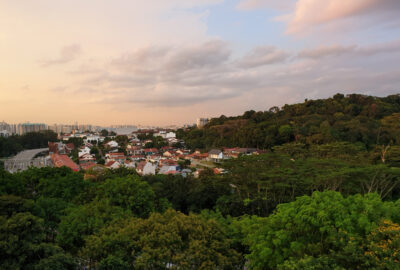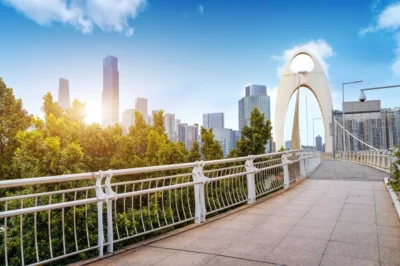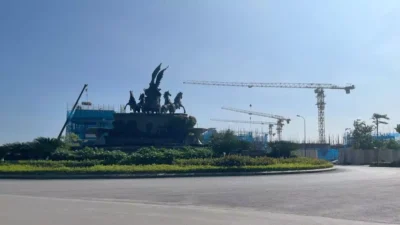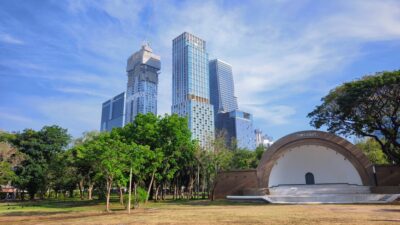Bangkok’s towering skyline reveals a glut of supply and numerous postponed project launches
With the 2020 global pandemic accelerating a sluggish trend in its property market, Thailand’s years of strong growth and brisk sales may be over: at least for the moment

If last year had started to unpick the threads of Thailand’s property market, the novel coronavirus has blown a hole right through its fabric.
The country was already reeling from oversupply, flagging sales, and dwindling Chinese demand when the pandemic hit—and things have taken a turn for the worse.
From mid-March to April, there have been no new condominium launches in Bangkok. Projects due to be launched are postponed to the last quarter of the year, while many sales offices have closed as staff work from home.
As Suphin Mechuchep, managing director of JLL Thailand, puts it: “All of the core property sectors have been affected by the outbreak in one way or another.”
“In March, the outbreak of Covid-19 was especially severe, resulting in a decrease in the number of people visiting projects,” reports Risinee Sarikaputra, director of research at Knight Frank Thailand.
From its initial forecast of 20,000 units, Knight Frank Thailand expects around 11,000 to 12,000 units to come on the market by the end of the year.
Beyond the decrease in new condominium sales, Risinee says “concerns remain about the number of condominium transfers for completed projects that are ready to be turned over this year amid the nationwide lockdown.”
A similar trend is playing out in secondary markets. The pandemic’s impact on travel and tourism has slashed both domestic and foreign demand for holiday homes—a key segment in coastal hotspots like Phuket and Hua Hin.
“Along with most expat agents here, I deal with foreign buyers. With no international flights coming in, there haven’t been any sales happening,” says Russ Downing, managing director of Hot Hua Hin, which does business in real estate and publishing.
The pandemic is accelerating a trend that already started last year, effectively putting an end to Thailand’s years of strong growth and brisk sales.

In 2019, Bangkok’s condominium sector saw sales of just under 40,000 new units—a massive cut from its five-year-average of 58,000, according to data from Knight Frank Thailand.
The condo price index for Greater Bangkok slowed for a third straight period in the fourth quarter of 2019 as developers capped prices, according to the Real Estate Information Centre. Last year marked a sluggish year for the Bangkok condominium market, affirms Risinee, “reflecting low confidence among both developers and buyers in the Thai market.”
In Phuket, which performed better than Bangkok, sales last year were relatively flat at 4,177—compared with 4,022 in 2018—while Pattaya saw a drop in the average sales rate from 35% in 2018 to 25%.
A major reason for the lacklustre performance nationwide has been the tightening of mortgage regulations to curb speculation and risk taking, along with higher interest rates set by the Bank of Thailand at 1.75%.
As of April, homebuyers looking to take out multiple mortgages were required to make a minimum downpayment of 10%. Developers are objecting to such heavy-handed measures after the rejection rate for bank loans doubled and pre-sales of high-rise projects fell by 30% and low-rise projects by 17% by August.
The downturn in demand from Chinese buyers, which has fuelled Thailand’s real estate boom in recent years, spells trouble for the Kingdom. While 2019 saw encouraging numbers of Chinese tourists—10.99 million, up 4.4% on the year before—fewer scouted for investment opportunities as they have done in the past, says property watchers.
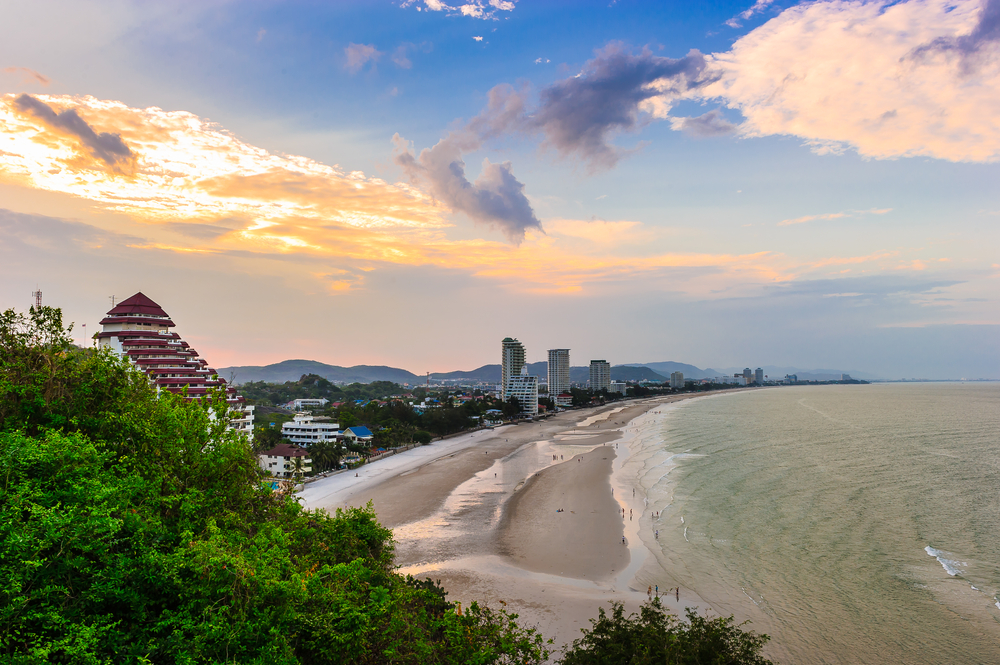
A weakening yuan caused by China’s economic slowdown and its trade war with the US, along with stricter measures to curb currency outflows from China and a strong baht, have led Chinese buyers to shy away from Thailand. “These factors have resulted in decreased liquidity to buy condominiums launched in the past year, and the market has slowed down considerably,” says Risinee.
Vichai Viratkapan, acting director-general of the Real Estate Information Centre, says that around half of Chinese condo transfers are expected to disappear in the first two quarters of this year. The shrinking Chinese market, along with travel restrictions due to the pandemic, present a challenge to reducing the country’s vast oversupply over the next few years. The number of remaining condominium units for sale nationwide at the end of 2019 was approximately 98,158.
In Bangkok’s luxury residential condominium segment, the pandemic has not affected prospective buyers’ spending power. But it has dampened sentiment in the market
The situation has forced many developers to keep from launching new projects while shifting their focus to units priced below THB100,000 (USD3,200) per sqm, to appeal to first-time buyers and those with smaller budgets. This year, developers like Land and House, Golden Land, and Property Perfect have refrained from launching projects at all. The few firms still planning to launch—at only one project each—include Ananda Development with Ideo Pahol Saphan Kwai, and SC Asset with the 429-room Crest Park Residences.
AP Thailand announced it would be targeting more provincial markets with projects in the THB1m to THB2m price segment, while the luxury segment has resorted to heavy discounts to get them through the hard times, says JLL’s Suphin. “In Bangkok’s luxury residential condominium segment, the outbreak has not affected prospective buyers’ spending power. But it has dampened sentiment in the market which has seen slow sales in the past few years.”

With foreign buyers accounting for nearly one third of nationwide new home sales transactions, some analysts predict it will take about two years before Thailand’s property markets rebound.
Juwai IQI—a real estate portal for Chinese buyers—forecasts that after a generally negative outlook for residential prices over the coming year, which are expected to drop by 2.4% by the end of 2020, “a strong recovery” should follow with prices climbing to 5.6% by the end of 2021.
Yet any such recovery is largely dependent on many factors: Thailand’s ability to contain the coronavirus, to safely welcome back tourists, and for local and foreign buyers to be ready and willing to spend on real estate again.
Any recovery will also require China to contain its domestic problems while repairing relations with the US, which looks unlikely to happen anytime soon as tensions intensify over the pandemic.
Clayton Wade, managing director of Premier Homes Real Estate, says at this stage only those who can “pull out a crystal ball” can “shed light on the fates of real estate markets in Thailand and South East Asia.”
This article originally appeared in Issue No. 161 of PropertyGuru Property Report Magazine
Recommended
Meet the expert helping overseas investors crack Australia’s property market
Ivan Lam of property advisors Charter Keck Cramer helps clients navigate Australia’s complex real estate dynamics
6 spots to check out in Singapore’s Bukit list neighbourhood
The sought-after Singapore neighbourhood offers lifestyle amenities, green space, and new residential projects
Thailand’s real estate sector watches closely as the Shinawatras return to power
Time will tell if the return to power in Thailand of the Shinawatras will lift the country’s ailing real estate sector
China’s homebuying surge: Can new stimulus measures keep the market rally alive?
Stimulus measures have sparked a surge in homebuying activity around China, but many are sceptical the shift will endure


